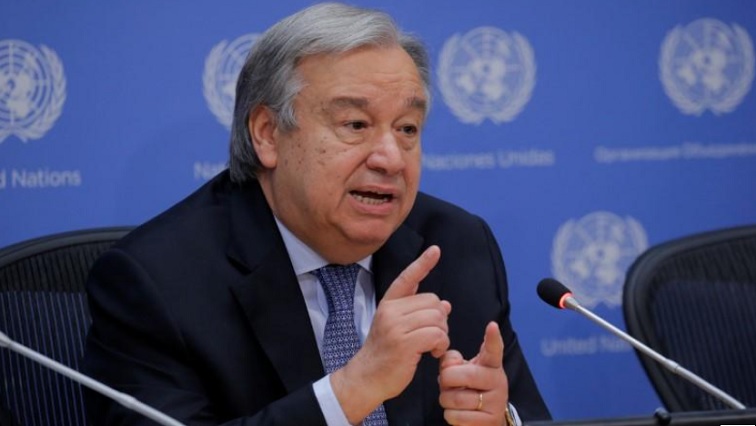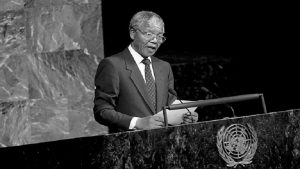The United Nations Secretary-General has issued a new policy brief calling for greater investment in job-rich growth, social protection, and a just transition to a net-zero emissions future. The brief is aimed particularly at low and middle-income countries where already deep inequalities have been exacerbated by the COVID-19 pandemic while developed economies with larger fiscal means and access to vaccines recover more rapidly.
Antonio Guterres also announced the creation of a new Global Accelerator for Jobs and Social Protection in collaboration with the International Labour Organisation.
The economic and social fallout from the COVID-pandemic has been acute with concerns growing that an unequal recovery is further eroding trust, as UN Chief Antonio Guterres explains.
“This uneven, unfair recovery is eroding trust between the developed and developing world trust that is essential to global cooperation in other areas. Today’s meeting is an opportunity to change course and to build a recovery that benefits all. The pandemic is set to increase the number of extremely poor people by up to 224 million around the world. More than three-quarters of these ‘new poor’ are in middle-income countries. Many developing countries face crippling debt service costs while their domestic budgets are stretched and their ability to raise taxes is reduced. These countries urgently need a helping hand.”
The aim of the accelerator is to create 400 million jobs by 2030, primarily in the green and care economies, and extend social protection floors by 2025 to 50% of the people currently not covered.
“The social costs, the human costs let me say, of this pandemic have been immensely magnified by the fact that the majority of the global population today is not covered by social protection of any type whatsoever. That applies to 53% of our fellow human beings. You know, and if we are talking seriously about resilience, building back better, that is a status quo and a reality that simply cannot be allowed to continue,” says Director-General of the International Labour Organisation Guy Ryder.
Effect of vaccine disparities
This is as vaccine disparities complicate the economic recovery in some regions already on the back foot in terms of economic growth and unemployment when COVID-19 hit as Guterres warned of the risks of losing key development gains made over the last 10 years.
“In developed countries, access to vaccines has allowed economies to reopen, while stimulus payments and investments herald projected growth of 5 or 6 % this year. In sub-Saharan Africa, that figure is just about 2.5%. A recent report by UNCTAD, the United Nations Conference on Trade and Development, forecast that the cumulative cost of delayed vaccination alone will amount to 3 trillion US dollars by 2025, with developing countries bearing the brunt. This could lead not only to a lost decade for development but to a lost generation of poorly educated, unemployed, disaffected young people. ”
A view echoed by the World Bank President David Malpass.
“We are confronting a looming era of reversals of the development achievement of the last decades. The World Bank has worked with countries to promote social protection, livelihoods and jobs, and financial inclusion investments. Since the start of the pandemic global social protection programmes have been expanded at an unprecedented scale. More than 200 countries have deployed more than 3 000 social protections and labour measures. Relative to pre-COVID levels, programmes doubled the amount of cash provided to beneficiaries and coverage more than tripled on average.”
The UN says at least $982 billion in fiscal stimulus measures is needed to respond to the immediate labour market shocks of the current crisis and to support a just transition with $1.2 trillion required annually for social protection floors in low and middle-income countries. Urging the public and private sectors to leverage finance to significantly ramp up such investments and for stimulus packages and national budgets to be more aligned with the 17 Sustainable Development Goals and the Paris Climate Change Agreement just as countries prepare for a game-changing UN Climate Conference in Glasgow.






